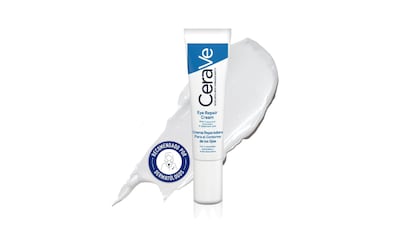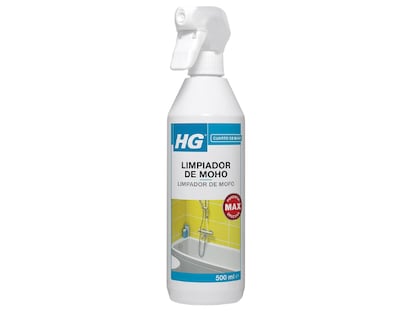Cable sobre la corrupci¨®n en el Ej¨¦rcito peruano
Informe sobre los pagos que realiza el narcotr¨¢fico a mandos del Ej¨¦rcito peruano para que la lucha contra el terrorismo no interfiera en sus actividades
| ID: | 196642 |
| Date: | 2009-03-12 21:57:00 |
| Origin: | 09LIMA345 |
| Source: | Embassy Lima |
| Classification: | SECRET//NOFORN |
| Dunno: | 09LIMA1640 09LIMA1865 |
| Destination: | VZCZCXYZ0002 PP RUEHWEB DE RUEHPE #0345/01 0712157 ZNY SSSSS ZZH P 122157Z MAR 09 FM AMEMBASSY LIMA TO RUEHC/SECSTATE WASHDC PRIORITY 0184 INFO RUEHAC/AMEMBASSY ASUNCION PRIORITY 2218 RUEHBO/AMEMBASSY BOGOTA PRIORITY 6422 RUEHBR/AMEMBASSY BRASILIA PRIORITY 8150 RUEHBU/AMEMBASSY BUENOS AIRES PRIORITY 3709 RUEHCV/AMEMBASSY CARACAS PRIORITY 1348 RUEHLP/AMEMBASSY LA PAZ MAR 5117 RUEHMN/AMEMBASSY MONTEVIDEO PRIORITY 9687 RUEHQT/AMEMBASSY QUITO PRIORITY 2393 RUEHSG/AMEMBASSY SANTIAGO PRIORITY 2234 RHEHAAA/NATIONAL SECURITY COUNCIL WASHINGTON DC PRIORITY RUMIAAA/USCINCSO MIAMI FL PRIORITY |
S E C R E T LIMA 000345 NOFORN SIPDIS E.O. 12958: DECL: 03/13/2034 TAGS: PGOV, PREL, PINR, PTER, SNAR, KCRM, PE SUBJECT: ALLEGED ARMY CORRUPTION -- A PERSPECTIVE REF: A. LIMA 1865 B. IIR 6 876 0037 08 C. LIMA 1640 D. IIR 6 876 0018 09 Classified By: Amb. P. Michael McKinley. Reasons 1.4 (b) and (d). 1. (S/NF) Introduction and Summary: The Garcia Administration's efforts to combat narcotrafficking have been stronger than under past administrations, and have included a National Anti-Drug Strategy partly supported with government funds, solid progress combatting coca production in the Upper Huallaga Valley, and better police cooperation. And while corruption has long plagued Peruvian government institutions, few observers believe the problem today is anywhere near as deep or extensive as during the shadowy (1990-2000) reign of former President Fujimori's intelligence chief Vladimiro Montesinos. xxxxxxxxxxxx has claimed to Poloffs that remnants of the Montesinos narco-corruption web still exist within the military. xxxxxxxxxxxx argues that some senior military officials receive lucrative payoffs from drug traffickers operating in the Apurimac and Ene River Valley (VRAE), which is also the base of one of the most important remnants of the Shining Path guerrillas. xxxxxxxxxxxx contends that the army -- for fear of disrupting these drug trafficking networks and losing access to payoffs -- is unwilling to commit the large force needed to pacify the VRAE. As a result, xxxxxxxxxxx argues, ongoing military operations against the Shining Path are destined to fall short. Some of xxxxxxxxxxxx accusations are corroborated by other Embassy contacts, press reports, and internal documents as well as circumstantial evidence. Although the xxxxxxxxxxxx clearly has an axe to grind against xxxxxxxxxxxx, the evidence calls for close monitoring. In the meantime, it is apparent that Defense Minister Antero Flores Araoz is continuing to push the military to build on and expand new counter-terrorism efforts in the VRAE. (Note: This cable focuses on military, rather than police corruption because the military retains principal authority in the VRAE. The military's recent operations against the Shining Path in the VRAE are discussed Septel. End Note.) End Introduction and Summary. Army Command Dismantles Military Operations in the VRAE (2004) --------------------------------------------- ------------ 2. (S/NF) Corruption has long plagued Peruvian government institutions, including the security services -- military, police and judicial. Former President Alberto Fujimori's (1990-2000) intelligence chief Vladimiro Montesinos, for example, collaborated with top army and other security officials to develop a web of protection for favored drug traffickers while cooperating with U.S. officials to combat others. To many observers, that was Peru's "heyday" of narco-corruption -- a time when the government of Peru verged on becoming a kind of "narco-state" in which those who controlled the main criminal trafficking networks were in fact high government officials. While most observers acknowledge that Peru has come a long way since that time, sharply reducing the extent of such subterranean influences, few believe that drug-related corruption has been eliminated and some believe it may now again be on the rise. xxxxxxxxxxx argues that significant elements of this corrupt network continue to exist and to operate -- now under the control of second-tier officers from the Montesinos period. 3. (S/NF) Many of xxxxxxxxxx principle accusations stem from corruption xxxxxxxxxx says xxxxxxxxxxx witnessed xxxxxxxxxx in Ayacucho (which includes part of the VRAE). At that time xxxxxxxxxx launched a counter-insurgency operation that xxxxxxxxxx claimed some senior army officers later dismantled when it threatened their own corrupt interests. xxxxxxxxxx used a small salary increase approved by then-President Alejandro Toledo to recruit auxiliary troops from local self-defense groups in the VRAE to build xxxxxxxxxxxx forces from 300 to 3,500 troops. xxxxxxxxxx deployed these troops to small bases of about 100 soldiers each, spread throughout the VRAE in Ayacucho. xxxxxxxxxxx told Poloff xxxxxxxxxxx such bases would be better positioned to resist insurgents and drug traffickers than the isolated outposts of five to seven soldiers -- the model in use at the time -- who regularly accepted bribes rather than risk confronting superior forces. (A variety of articles and investigative news programs from 2004 confirmed this de scription xxxxxxxxxxxx.) 4. (S/NF) xxxxxxxxxxx however, the army xxxxxxxxxxx dismantled xxxxxxxxxxx and reduced troop levels to 700. xxxxxxxxxxxx threatened lucrative sales of excess fuel by senior army officers to drug traffickers. xxxxxxxxxxxx Excess Fuel Scandal Implicates Top Generals (2006) --------------------------------------------- ----- 5. (S/NF)xxxxxxxxxxx the excess military fuel scandal that erupted in 2006 is linked to the army's drug trafficking ties in the VRAE. The scandal broke when the press denounced a scheme by some senior generals to request hundreds of thousands of gallons of fuel in 2006 for sale and personal enrichment. xxxxxxxxxxx that about half this fuel was sold to companies like Repsol, while the rest, in the form of kerosene, was sold to drug traffickers in the VRAE. One prominent counter-narcotics analyst told Poloff he had seen evidence that the military had sold kerosene to drug traffickers in northern Peru, and -- although he did not have evidence -- believed it plausible they have also sold to traffickers in the VRAE. Prosecutors have since implicated dozens of Generals in the scheme to commercialize fuel, including then Army commander Cesar Reinoso -- who was forced to resign -- and his replacement Edwin Donayre. Reinoso later claimed that the scheme was nothing new and that nearly all senior generals participated. (Note: Officers are officially provided periodic fuel allotments, usually more than can be reasonably consumed, and consider this a perquisite that complements their base salary. End Note.) Army Commanding General Donayre retired from the military on December 5 -- putatively for his politically inflammatory comments relating to Chile (Ref A) -- but in the view of some observers for other reasons as well, including his alleged involvement in the fuel skimming scheme. xxxxxxxxxx 6. (S/NF) Peru's Public Ministry is currently investigating the fuel scandal, so far without results. In a series of recent articles published in the political weekly "Caretas," prominent investigative journalist Gustavo Gorriti has alleged an army cover-up. Gorriti reported that General Donayre declined to meet Public Ministry investigators on six separate occasions, and that he reassigned the army's internal inspector to a remote jungle posting after the inspector issued a damning report on the scandal. Gorriti also reported that the GOP's independent Comptroller in 2008 completed an investigation that said the military used clumsy counterfeit documentation to "justify" over $2 million in excess fuel. xxxxxxxxxxx told Poloffs that the army is withholding internal accounting documents that would help prove the investigators case. xxxxxxxxxxx gave Poloff what xxxxxxxxx said were copies of these documents, marked "Secret", that showed hundreds of thousands of gallons of "extraordinary fuel" allotments to various generals in 2004 and 2005. Cocaine Exported Via Army Base in Northern Peru (2004) --------------------------------------------- ------ 7. (S/NF) xxxxxxxxxxx told Poloff he believed a drug trafficking operation uncovered by police in 2004 at an army base in Piura in northern Peru was also linked to some senior military officials and drugs exiting the VRAE. According to a series of investigative reports by a prominent newspaper, a junior officer gave traffickers linked to a Mexican cartel free rein to use the base and its military vehicles to transit cocaine shipments to a military port where the navy ran a fish-packing operation. At the port, the traffickers packed the drugs in with the fish for export. In the 2004 bust, police captured 700 kg of cocaine. The commander of the base at the time, General Williams Zapata -- now Peru's representative at the Inter-American Defense Board in Washington -- refused to comment beyond claiming that the military was not involved with drug trafficking. xxxxxxxxxx however, told Poloff that the implicated junior officer as well as another perpetrator privately alleged that both General Zapata and another unnamed senior general had participated in the drug operation. (Note: Currently, the junior officer is detained in Brazil, awaiting possible extradition, and the other offender is in prison in Piura awaiting trial. End Note.) 8. (S/NF) xxxxxxxxx saw signs that officers may have continued to cooperate with drug traffickers. His main suspicion surrounded a visit to the base that year by the Director of the National Chamber of Fishing of Piura, Rolando Eugenio Velasco Heysen, to meet regional Army commander General Paul da Silva. xxxxxxxxxx speculated that Da Silva and Velasco -- who was arrested in October 2007 for attempting to export 840 kilograms of cocaine hidden in frozen fish -- were coordinating drug shipments. An investigative journalist later reported that both Da Silva and General Edwin Donayre had met with Velasco, but that Velasco claimed he was merely promoting the consumption of high-protein squid by the army. xxxxxxxxxxxxx claims this argument makes no sense because the Generals' meetings with Velasco occurred outside the time of year that the Army signs new contracts. Counter-Drug Analysts on Possible Narco-Army Links --------------------------------------------- ----- 9. (S/NF) A prominent Peruvian counter-drug analyst who travels regularly to the VRAE agreed with the assessment that some senior army commanders were complicit with drug trafficking. He further believed the military was beginning to recuperate the political power that it had in the 1990s under President Alberto Fujimori's spy chief Vladimiro Montesinos, when senior military officers worked surreptitiously and closely with (certain) drug traffickers. This analyst said that on his last trip to the VRAE, a local mayor told him the military controlled all the main riverine drug routes, and that officers charged protection money rather than staunch the flow. A second analyst who travels regularly to the VRAE said he had clear evidence that the military controlled at least one major drug route (through Cayramayo) and charged bribes from passing drug traffickers. 10. (S/NF) The analysts also highlighted the case of a drug plane that crashed in October 2007 while trying to take off from a clandestine airstrip in VRAE. According to a report in the left-of-center newspaper La Republica, the airstrip was located in direct view of a military base. The paper's local sources said that no plane could take off or land without being spotted from the base. The first analyst said his sources in the area told him the army had actually built the airstrip. According to a DAO source, after the plane crashed, an army unit sought to destroy any evidence by cutting up the wreckage and dumping it in the river (Ref B). The national police received a tip about the army's actions and recovered the plane, but did not report the incident in order to avoid inflaming already tense relations with the military. Army sources told La Republica, however, that the plane was the first they had ever discovered in the area and that they immediately reported it to the police. Implications for Military Operations in the VRAE --------------------------------------------- --- 11. (S/NF) xxxxxxxxxxx several analysts argued that the military are reluctant to implement a serious plan to pacify the VRAE because the payoffs from drug traffickers are too profitable. These contacts dismissed the recent Operation Excellence in Vizcatan (Ref C and Septel) as too small to have any real impact in such a large and harsh terrain. The operation may temporarily displace Shining Path cells, they said, but it will not deter drug traffickers. One analyst described the operation as a smokescreen designed to deflect increasing political pressure on the army to show results. Another analyst argued that the operation appeared to be a serious effort to decapitate Shining Path while at the same time avoiding the disruption of profitable drug trafficking routes. xxxxxxxxxxx Comment: A Series of Worrying Indicators ---------------------------------------- 12. (S/NF) xxxxxxxxxx the limited and tentative progress by the military in the VRAE to date does give some plausibility to xxxxxxxxxx argument that the some army officials may not support the larger objectives of the ongoing operations in the VRAE. We will continue to closely monitor evidence of drug corruption in the military and to encourage the government to consolidate and expand on the first steps taken during Operation Excellence. MCKINLEY |
Traducci¨®n autom¨¢tica. Puede que el texto traducido no sea fiel al original
Tu suscripci¨®n se est¨¢ usando en otro dispositivo
?Quieres a?adir otro usuario a tu suscripci¨®n?
Si contin¨²as leyendo en este dispositivo, no se podr¨¢ leer en el otro.
FlechaTu suscripci¨®n se est¨¢ usando en otro dispositivo y solo puedes acceder a EL PA?S desde un dispositivo a la vez.
Si quieres compartir tu cuenta, cambia tu suscripci¨®n a la modalidad Premium, as¨ª podr¨¢s a?adir otro usuario. Cada uno acceder¨¢ con su propia cuenta de email, lo que os permitir¨¢ personalizar vuestra experiencia en EL PA?S.
En el caso de no saber qui¨¦n est¨¢ usando tu cuenta, te recomendamos cambiar tu contrase?a aqu¨ª.
Si decides continuar compartiendo tu cuenta, este mensaje se mostrar¨¢ en tu dispositivo y en el de la otra persona que est¨¢ usando tu cuenta de forma indefinida, afectando a tu experiencia de lectura. Puedes consultar aqu¨ª los t¨¦rminos y condiciones de la suscripci¨®n digital.
































































